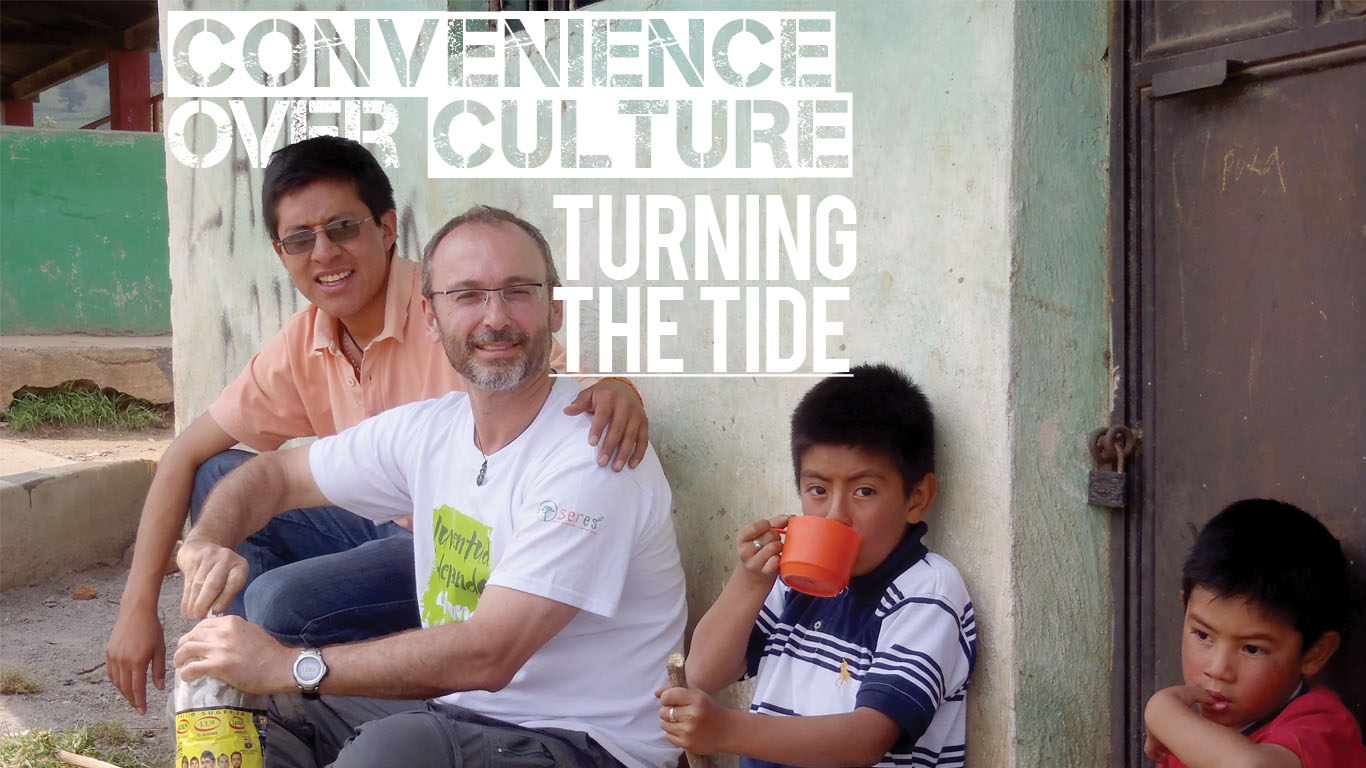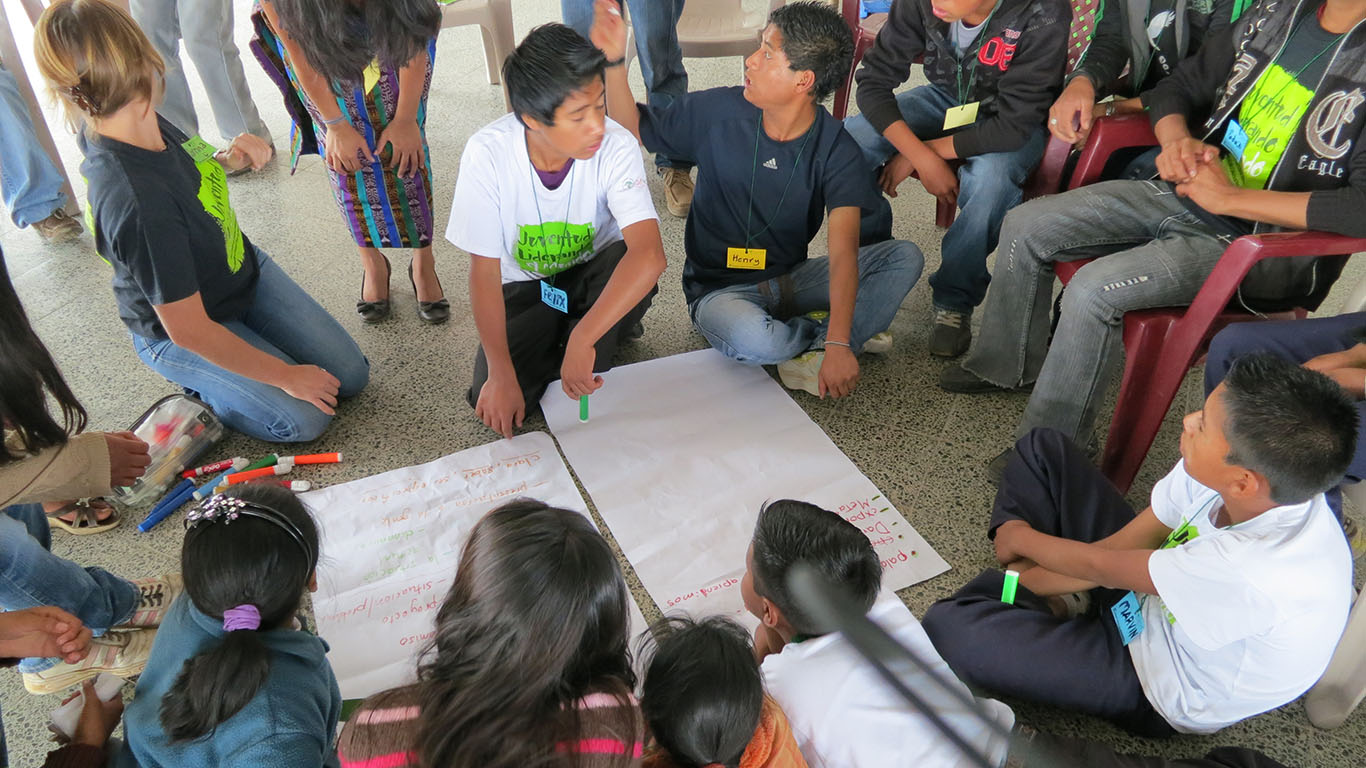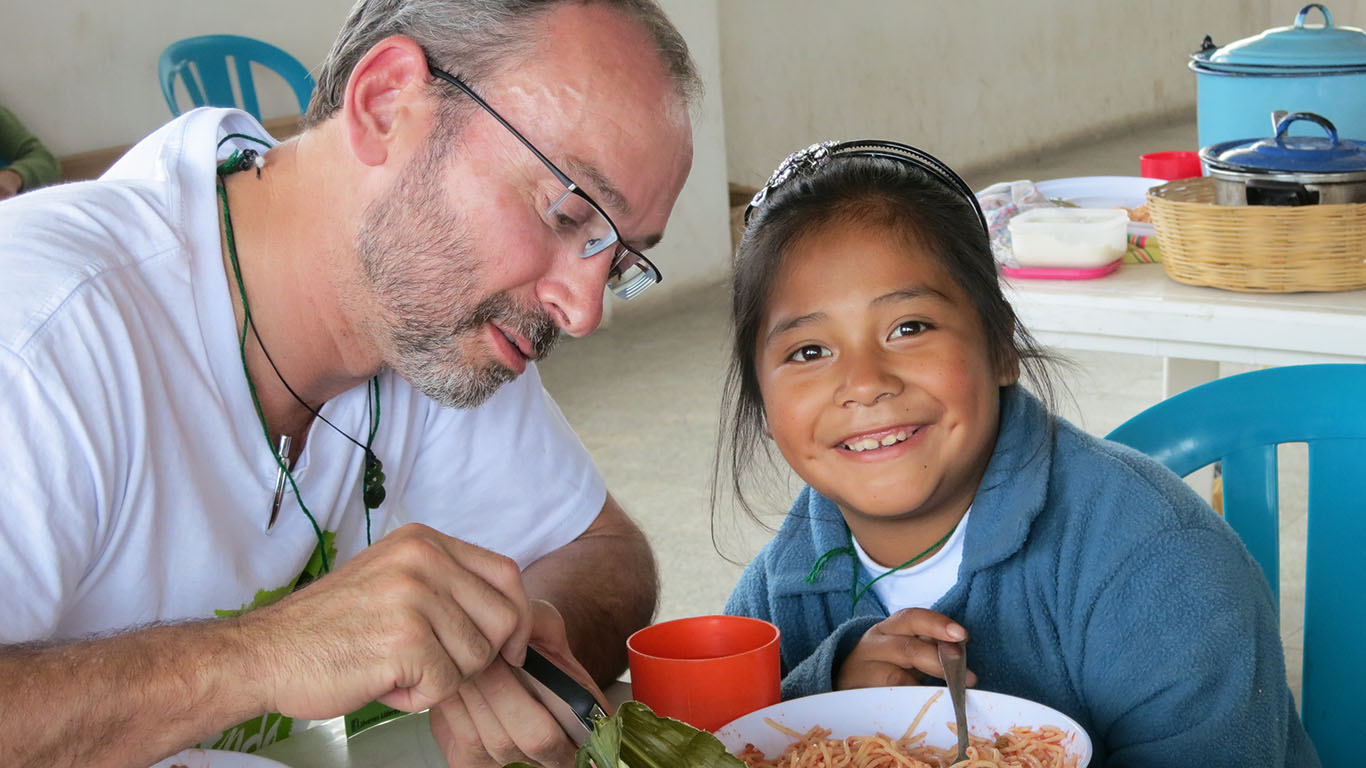The pristine Guatemalan landscape that greeted the Spanish conquistadors in the 16th century must have been a breathtaking sight.
Guatemala’s natural abundance of biologically significant and unique ecosystems is testament to its natural beauty. But this mountainous landscape, and the traditional lifestyle of its inhabitants, is under threat.
“This is a society, where for thousands of years, everything they’ve touched & owned has been bio-degradable,” says NDY director Rowan Peck. “Then plastic started appearing – bags, wrappers, packaging – and the locals literally throw them on the ground because that’s what they’ve always done. In some parts, litter is buried two metres into the ground they use for growing their crops. The soil is just impregnated with garbage.”
Peck recently travelled to Guatemala to volunteer at a Project Seres “Youth Lead” Congress. Project Seres is not an aid organisation: it’s a charity which is focused on engaging, educating and empowering local communities. Seres held a workshop in the rural community of La Estancia, near Quetzaltenango in May to engage with and educate the local Guatemalan youth with an opportunity to become leaders of their own healthy, thriving future.
“Traditional values are rapidly being cast aside for Western luxury,” says Peck. “Traditionally, Guatemalan’s would eat out of pottery bowls and wrap their food in tea towels to keep it warm. Going back just a few decades, plastic products did not exist. Now you buy a banana and they give it to you in a plastic bag. The plastic bags then end up on the ground because there is no system for getting rid of garbage. They just don’t have the infrastructure and there’s no social awareness. There’s just no education.”
In the absence of any coordinated waste management system, one solution has been to literally use the garbage to build houses. By filling plastic bottles with rubbish, Guatemalan’s are effectively dealing with two issues: waste and building materials. The waste-filled bottles are called Eco Ladrillos, which literally translates to Eco Bricks. Already utilised in other parts of the third world, this is not a new concept but it’s one which is providing a sustainable re-use of rubbish. “Of course, this only deals with a fraction of the garbage tumbling down the streets and ending up in the soil,” says Peck. “Project Seres is looking to deal with the problem of education: how to get the locals to re-think their approach to waste, and to their environment.”
Founded and run by former NDY engineer Corrina Grace, Project Seres looks to educate the locals, particularly the younger generations, that they don’t have to be wading around in a sea of garbage.
The Youth Lead Congress concept was developed in Australia by OzGreen, and has been adapted by Project Seres to suit the Guatemalan situation.
Apart from direct involvement from NDY such as the volunteering efforts of Peck, the NDY Charitable Trust has donated funds to Project Seres through OzGreen, with another instalment earmarked to be donated over the coming months. According to Peck, every $5000 is enough to put 100 kids through this program.
Project Seres is now looking to build a permanent base and has identified a suitable plot of land to purchase. This base will be the Seres nerve centre – a collaborative space where locals will come together to develop sustainability initiatives. The centre itself would be reasonably self sufficient by adopting sustainable principles such as rainwater collection, growing organic food, and waste minimisation. Concepts like aquaponics will be embraced where the wastewater from a large fish tank is used as plant nutrients. “Water pumps through the plants and reoxygenated water returns to the fish tank, the fish eat the waste from the plants, round and round … you get fish out one end and food out the other. “Very much living by example,” exclaims Peck.
Unlike other non-government organisations which land in Central America and South America, which too often seek to impose 1st world solutions onto locals lives, Seres is about empowerment and education. “It’s about sitting down with the youth and saying, here’s the situation that’s going on in the world, in your world – what would you like to do about it?” says Peck.
The three day Congress was a revealing experience for Peck and he admits that it was a rough start. “These kids are used to going to school, copying work off a black board and going home at 1pm. And then suddenly we ask them to engage in intensive eight-hour days. They were amazingly resilient and passionate. By the final day, they were left to their own devices. They sat down with an action plan that asked them to identify their goals and how they proposed to measure them. It was the end of three big days, but they refused to leave, they wanted to get it sorted!”
Don Manuel, a village elder, was invited to speak on the second day and talk to the kids about the history of the area and what life used to be like. He told the group that 50 years ago, you could drink from any stream and fertiliser didn’t come in bags . “There was a deep sense of tranquillity because people either travelled by foot or on horses,” he says. “We ate fresh from the land and the community had never seen plastic. Today, we have been given aspects of western convenience which have become an environmental and social disaster. My greatest desire is that these young people will be bigger, bolder and more successful than my generation.”
Peck can see the clear benefits of the Project Seres approach. “The Seres approach empowers local kids to own the process and outcomes. By the end of three days, they were able to stand up in front of their peers and community leaders and articulate, persuade and engage with the audience. Watching that unfold in the kids was the highlight of the three days for me. It gave me a deep sense of hope for Guatemala’s future.”



